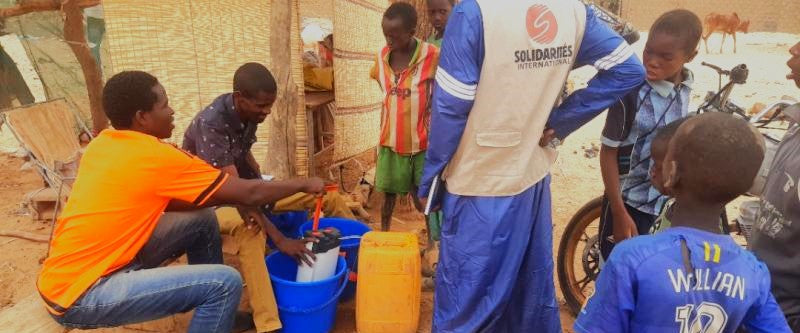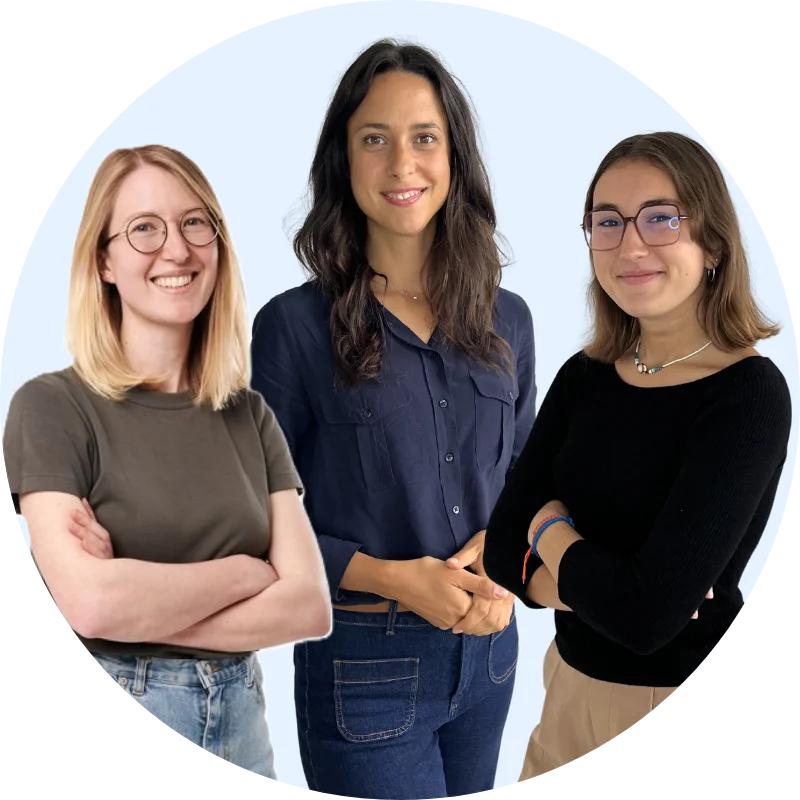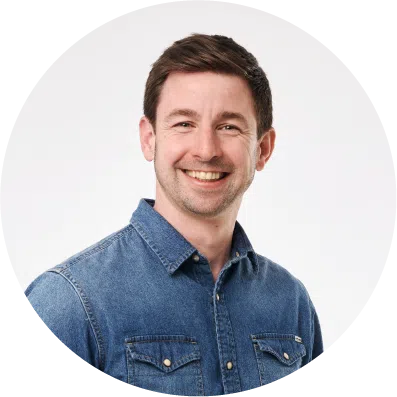
Solidarités International in Burkina Faso in response to the conflict and the need for drinking water in Djibo
A tense situation around drinking water resources in Burkina Faso, in Djibo
Since 2022, Djibo chief town of Soum in Burkina Faso has been facing an implosion of the Burkinabe population, as a consequence of internal conflicts opposing non-state armed groups (GANE) and government forces. This demographic implosion is unfortunately not without consequences. It has led to a shortage of natural resources, including water. This has led to the umpteenth intervention by Solidarités Internationale in this West African territory.It comes against the backdrop of a stormy situation: according to the Conseil National de Secours d'Urgence et de Réhabilitation (CONASUR), there are 283,428 internally displaced persons and 50,000 inhabitants of the resident population, a total ratio of 567% displaced persons. Access to natural resources is severely restricted by armed groups.The situation is critical with the sabotage of a generator on the network of the Office national de l'Eau et de l'Assainissement (ONEA), which supplied 2/3 of the population with water, attacks on water infrastructure (2 of 3 water generators, 6 of 12 solar-powered abducteurs), and more generally, the blockade of the town.
925 ORISA® water purifiers deployed in several stages
500 ORISA® by 2022 - Discreet deployment in complex situations for safe access to drinking water in Burkina Faso
In 2022, faced with the impossibility of carrying out repairs, the inaccessibility of water points, and the impossibility of using emergency water treatment systems due to the risk of vandalism, Solidarités International needed a water treatment solution that was discreet due to its small size, community-based, and could be made available at water points and instantaneously for use on demand.
In view of these requirements, Solidarités International called on Fonto de vivo to limit the deterioration in the population's health situation.
To meet these numerous logistical constraints, the NGO chose the ORISA® stand-alone water purifier, of which it purchased 500 units and 20 membranes to meet the needs of displaced people: cooking food, giving animals something to drink, maintaining regular hygiene, keeping hydrated, etc. This easy-to-use, durable and effective water filtration solution is particularly well suited to the needs of these people. They have therefore developed a specific programme dedicated to the production of healthy water to limit water-borne diseases: trainers, awareness-raising campaigns, pumping points for day labourers, etc.
Interview with Amadou Abdouramane, head of the Burkina Faso programme
Amadou Abdouramane - Head of EHA and Shelter activities in Burkina Faso for Solidarités international
-

©Solidarités International journalists in training
-

©Water filtration point in Burkina Faso_Solidarités International/ORISA®
-

©Community distribution point for drinking water
305 ORISA® en 2023 - Le purificateur ORISA® pour produire une eau saine instantanément
In 2023, 305 additional purifiers and 245 membranes were deployed. as Pierre Brunet said in his article for Défis humanitaires, Humanitarian innovation put to the test in the field: the example of the Orisa water purifier, "Humanitarian action is about commitment and concrete responses, without which it is just words" and ORISA® is part of this approach. This high quality water purifier has been awarded full Protection *** by the WHO as part of its Home Water Treatment Technology Assessment Programme .
It offers a practical, effective solution for large-scale crisis situations such as Djibo. Ultra-compact, it can be transported by helicopter with less bulk than larger infrastructures or chlorine purification solutions.
The ORISA® water filter and its instant manual pumping system deliver a water flow rate of up to 180 litres per hour.
The lifespan of its membrane, estimated at 20,000 litres of filtered water before replacement, demonstrates the profitability and reliability of this equipment in humanitarian situations, both in emergencies and for development purposes.
Interview with Lise Florin in charge of the programme carried out in Burkina Faso
Lise Florin - Coordinator of water, sanitation and shelter programmes for Solidarités International
120 ORISA® by 2024 - A sustainable solution for access to water
In 2024, 120 additional ORISA® purifiers were deployed, as well as 120 replacement membranes. This humanitarian programme is a perfect example of the problems faced by many populations, namely famine and the lack of drinking water, which undoubtedly leads to water-borne diseases. By water-borne diseases, we mean illnesses caused by drinking water of poor quality and dubious origin. Hepatitis E, for example, is a benign disease most of the time, but it often leads to serious complications. It can kill people if they don't have access to good food and, above all, clean water. Cholera also has an impact on health, particularly that of young children. With the help of ORISA®, it is possible to limit these diseases caused by the consumption of unsafe water.
Although the intervention in western Burkina Faso is not yet complete, there has already been an improvement in the state of health of both the displaced persons and the Solidarités International volunteers, and the spread of disease has been limited.
As Lise Florin, Water, Sanitation and Shelter Programme Coordinator for Solidarités International, points out, the ORISA® solution has been of great benefit to the people of Burkina Faso affected by this conflict and has helped to improve the health and living conditions of these men and women. From the ease of use (thanks to the tutorials provided by Fonto de vivo), to the rapid production of 100 litres per hour, equivalent to 4 days' needs for a "normal" family, not to mention the improvement in water quality, the purifiers offer numerous advantages.
A few weeks later, the Médecins Sans Frontières teams returned to the area to continue the distribution throughout the village. Given the large number of beneficiaries, this distribution lasted 3 days, still in the same format as the first intervention and the next.
To meet the needs of the population, a total of 925 ORISA® water purifiers and 385 spare membranes have been deployed to limit water-borne diseases and consequently the rate of malnutrition.

Expertise born of humanitarian experience
ORISA® was designed on the basis of the field experience of a former humanitarian aid worker, David Monnier, who initially co-founded the company, and developed in response to specifications drawn up with the involvement of major French and international NGOs: Médecins sans Frontières, Croix Rouge Française, Solidarités International, Médecins du Monde, Handicap International, Terres des Hommes Lausanne, Premières Urgences.

"Adapting filtration technologies to individual needs and making them affordable, to meet the social and environmental challenges of our time".
Anthony Cailleau, French representative for projects in Colombia, President and co-founder of Fonto de vivo, contact for development aid and international cooperation.





